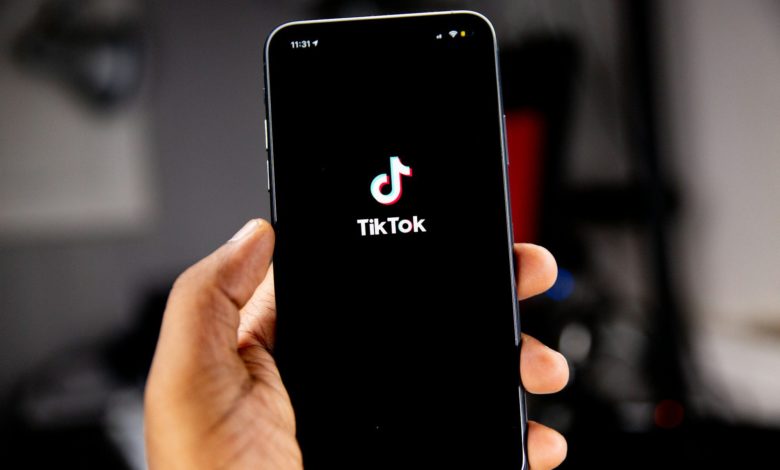
As TikTok navigates the ongoing threat of a U.S. ban, the company is seeking ways to continue operating in the country while avoiding government restrictions. ByteDance, TikTok’s Chinese parent company, is reportedly working on a new app designed specifically for U.S. users, possibly launching it by September 5, 2025. However, the path forward remains unclear as TikTok continues to deal with the impact of legislation passed under President Biden and the ongoing negotiations with U.S. officials.
The fate of TikTok in the U.S. has significant implications not just for the company but also for the millions of American users who use the app. As TikTok faces increased scrutiny, discussions about its sale and the national security concerns surrounding it are shaping both the business landscape and the future of social media in the U.S.
Market Impact: TikTok’s Controversial Sale and Its Potential Buyers
Several high-profile investors have shown interest in acquiring TikTok's U.S. operations, which could come with a price tag of $50 billion. Among the potential buyers are a group led by billionaire Frank McCourt Jr., Microsoft (MSFT), Oracle (ORCL) co-founder Larry Ellison, and internet celebrity Mr. Beast. These buyers see the app’s potential not only as a popular social media platform but also as a strategic asset in the growing digital and AI-driven market.
Despite the potential for a deal, the path to acquisition is not without its challenges. The U.S. government has repeatedly cited national security concerns about the app, accusing its Chinese parent company of potential surveillance of American users. This has led to pressure on ByteDance to divest its U.S. operations or face the possibility of a full ban. The Trump administration has been actively involved in these discussions, with President Trump reiterating that a sale is necessary for TikTok to continue operations in the U.S. The ongoing negotiations highlight the complexity of technology, national security, and international business dealings.
The Broader Implications for U.S. Consumers and Businesses
For U.S. consumers, the uncertainty surrounding TikTok’s future has led to significant concerns about the app’s availability and functionality. With over 100 million active users in the U.S., TikTok has become a vital part of many Americans' social media lives, influencing everything from entertainment and lifestyle trends to business marketing strategies. A potential ban or forced sale could disrupt these daily interactions, with unknown consequences for both individual users and businesses that rely on TikTok for advertising and consumer engagement.
On the business side, the impact of TikTok’s potential sale or removal from U.S. app stores could send shockwaves through the digital advertising industry. As one of the fastest-growing social media platforms globally, TikTok’s ad revenue has been a significant driver for brands seeking to connect with younger audiences. A forced sale could alter the competitive landscape, possibly allowing platforms like Meta (META) and YouTube to further solidify their dominance in digital advertising. However, the shift could also open doors for new entrants to capitalize on the void left by TikTok’s absence.
U.S.-China Relations and the Political Landscape
TikTok’s ongoing saga is deeply intertwined with U.S.-China trade relations, adding even more complexity to the negotiations. President Trump has repeatedly linked the TikTok issue with broader trade agreements, threatening tariffs on Chinese goods unless a deal regarding TikTok’s U.S. operations is reached. While the Trump administration initially pushed for a quick sale of TikTok’s U.S. business, the process has stalled due to concerns over the broader trade tensions between the two countries.
The situation highlights the political pressure influencing decisions about the app’s future. As tensions between the U.S. and China continue to evolve, the outcome of TikTok’s U.S. operations could have far-reaching consequences for not only the app but also the broader tech sector. A resolution to this issue may depend on the progress of trade talks between the U.S. and China, with both sides using TikTok as a bargaining chip in negotiations.
Looking Ahead
As the September 2025 deadline approaches, the future of TikTok in the U.S. remains unknown. A potential sale could provide a temporary resolution, allowing TikTok to continue operating under new ownership. However, the political and economic ramifications of such a deal are still unknown, particularly with the involvement of high-profile buyers and the ongoing national security concerns surrounding TikTok’s operations.
For U.S. users, the uncertainty surrounding the app’s future raises important questions about the sustainability of social media platforms in a politically charged environment. The outcome of these negotiations will likely shape the future of digital media, tech investments, and international business relations. As the deadline looms, both businesses and consumers must prepare for the potential impacts of a TikTok-less future in the U.S. While a sale could provide a clear path forward, the broader implications for the digital advertising landscape and global tech competition remain to be seen.




